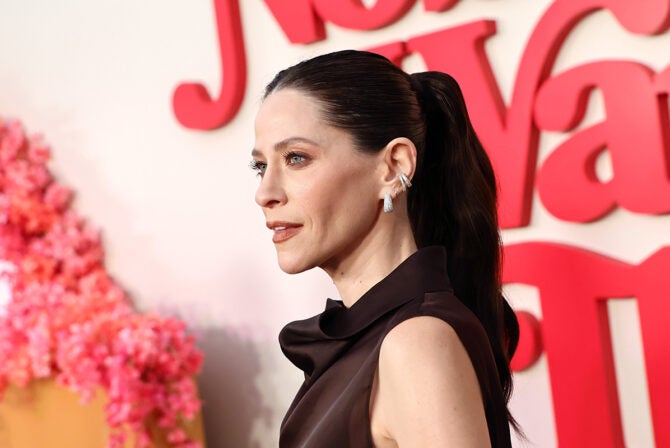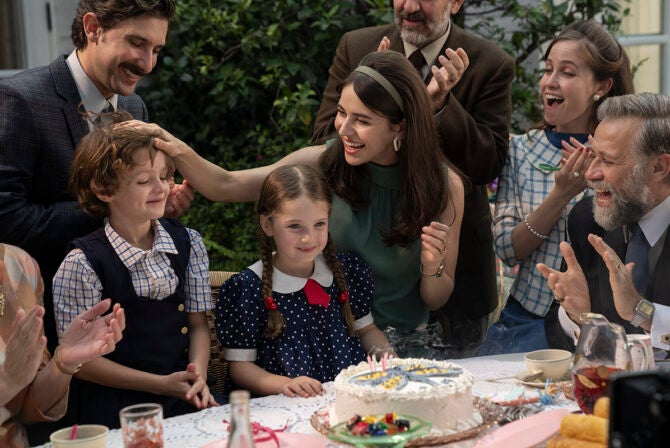I was deep in my third trimester and sweating through the Tel Aviv heat when I thought to myself, “Never again.” Seven years into my life in Israel, I just couldn’t spend another hot, intense, and chaotic summer there. It’s not just the blistering sun and the heavy moisture in the air that makes everything feel so hard. The heat creates a kind of intensity that seems to put everyone on edge.
Sure, the first few weeks of summer in Israel are nice, as the temperatures start to climb, the days grow longer, and salty beach hair and sandy clothes are still a novelty. But after a while, people start to get a little crazy. It feels like we’re constantly on the brink of a violent outbreak, which we often are. Our collective blood begins to boil.
So I promised myself: next summer in Canada.
I know this may sound extravagant, but I never took a maternity leave. As an entrepreneur, I simply didn’t have that option. I set up my out-of-office reply between contractions, took my newborn to meetings, and scheduled conference calls during her naps, muting the calls while she cried. Through it all, I fantasized about Canadian lakes, forests, and cool summer nights.
And, finally, we made it happen. But it was weirder than I expected.
You see, while Canadians are very polite, they keep their distance from one another, both physically and emotionally. Israelis, on the other hand, aren’t always respectful of boundaries. But after seven years in Israel, I had embraced my interaction with strangers — the intimacy and eye contact. I loved that people always said what they really meant.
So, I was shocked when my daughter’s new Canadian daycare treated me like a customer, instead of the mother of a baby who they, too, loved. The caretakers sent me daily reports about how much she ate, slept, played, and pooped. But unlike my daughter’s Israeli daycare staff, they didn’t greet my daughter with kisses and hugs every morning. They didn’t reprimand me for being late. And they never gave me parenting advice.
Also, while the local playground was pristine, I was surprised that strangers didn’t ask me to watch their babies while they ran to the bathroom, or that no one offered to share their snacks with us.
My trips to the grocery store were free from intense shouting matches, arguments, and tears. In fact, both my surroundings and interactions in Canada were quiet, calm, and orderly — which was exactly what I had craved.
I embraced the serenity of my temporary Toronto life. In my parents’ house, my childhood home, we settled into a quiet routine. There, I was in a safe cocoon. I let myself and my daughter be taken care of, welcoming the many hands that offered to bathe her, feed her, change her, and hold her.
Many nights, after putting her to sleep, my family relaxed on the couch to watch TV together. One night, someone suggested watching Fauda, an Israeli political thriller that focuses on counter-terrorism — its name literally means “chaos” in Arabic. In Israel, I never would have watched a show that tapped into my everyday fears. But tucked into my Canadian haven, I immediately agreed.
And soon, I was hooked, delighted by the intense intimacy of the characters. As their relationships unfolded and I found myself invested in them, as though they were my family. I became addicted to their drama, tragedies, love, and chaos.
Eventually, the summer ended. It was time to go home. Twelve hours after boarding our flight, we were transported to another time and place — another world, really. Much to my displeasure, Israel was still very hot. As we exited Ben Gurion Airport, the smell of cigarette smoke filled my nostrils and the sounds of cars honking filled my ears. But so did the sweet smell of orange blossoms and the beautiful sound of the Hebrew language.
A young man noticed me struggling to carry my baby and our luggage, and without asking, he grabbed a bag to lighten my load. He looked at us, smiled, tousled my daughter’s hair, and mentioned that his niece was the same age.
Back in Jaffa, I headed to a local cafe to catch up on some work. Exhausted from the long flight, I was in a bit of a daze when the door to the cafe opened and a familiar face walked in. Suddenly, a wave of panic and fear took over my body. My heart began to race, my mouth became dry. I started to shake.
“Oh my God,” I thought. “I’m going to die.” I waited for the inevitable shots.
But nothing happened. And then, almost as quickly as the feeling had come over me, it vanished. I felt a sense of relief and started to laugh.
It was the actor, Firas Nassar, who plays the lead terrorist on Fauda. In my jet-lagged state, caught between two worlds and two time zones, my brain couldn’t process the difference between fiction and reality. He sat at the table next to mine, and I told him what had just happened, calling it a testament to his acting.
He seemed amused, and then looked me straight in the eye and asked me the same question just about everyone has asked me since I moved to Israel seven years ago: “Why would you leave Canada for this place?”
There was no doubt about it: I was back in Israel, where a total stranger — and an actor on a hit television series, no less — was asking me a very personal and intimate question. The Canadian in me felt uncomfortable, but the Israeli in me was intrigued.
I answered him honestly. “I like the informality,” I said. “Yes, life is chaotic, messy, challenging, and intense, but it’s also interesting. It makes me feel alive.”
From there, we dove into a conversation that leapt from art, politics, and family to identity, citizenship, and “the conflict.” We talked about his role on the show and his community’s reaction to it. It was the most honest, intimate, and compelling interaction I had had with a stranger in a long time — actually, in about two months.
As I walked home through the hot, dusty streets of Jaffa, I reflected on these two worlds — my two homes, which could not be more different from one another. I wish I could say that I now feel 100 percent confident in my decision to build a life and raise a daughter in the more chaotic of the two places, but that would be a lie.
For now, though, I choose to be in Israel. Because in this chaotic country that I love, I experience an intensity that connects me to myself and the people around me. It forces my heart open and, most of all, it gives me hope for myself and for my family.







